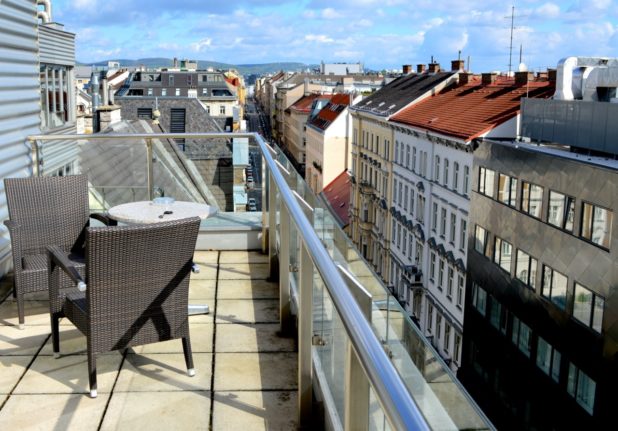For anyone with a smartphone, using an app is a part of daily life, whether it’s for transport, banking, essential admin or social media.
There are some apps that are more useful than others though – especially when it comes to living in Austria.
Here are the top apps that every international resident in Austria should have on their phones.
WienMobil
This is the official app of the Wiener Linien – Vienna’s public transport operator – making it an essential tool for anyone living in the capital city or the surrounding area.
The WienMobil app covers all forms of transport in the city, from trains to buses and ride sharing vehicles, and shows all the different forms of transport available for a selected route.
FOR MEMBERS: Ten destinations by direct night train from Austria
Tickets can even be purchased and stored in the app, which means users don’t have to carry a physical ticket when they are going about their daily lives.
WienMobil’s transport partners include Citybike Wien, Europcar, Taxi 31300 and Westbahn.
ÖBB
ÖBB is Austria’s national rail operator and the ÖBB app is useful for anyone that regularly travels by train in Austria – or for anyone visiting the country.
Users can purchase tickets within the app and receive notifications about delays or changes to a service, as well as view information about platforms at specific train stations.
City, weekly and monthly tickets can also be purchased in the ÖBB app.
Handy-Signatur
Before the pandemic, the Handy-Signatur was a little known app that most people didn’t understand, let alone use.
Then the Covid-19 Green Pass was rolled out, along with many other digital services, and the Handy-Signatur suddenly became an essential app.
But what is it exactly?
The Handy-Signatur is essentially a mobile phone (known as a Handy, in German) signature which turns your phone into a virtual ID card. It allows you to legally sign official documents without having to print them out and sign them by hand.
FOR MEMBERS: EXPLAINED: What is Austria’s Handy-Signatur and how does it work?
There is just one prerequisite for the Handy-Signatur – you need an Austrian or German mobile phone number to use it.
Also, it can be tricky to set up the Handy-Signatur as it requires registering at a registration authority, or at FinanzOnline – Austria’s online portal for the tax office. But once you’re in, it’s a practical tool to have.
However, it’s worth noting that the Handy-Signatur will become known as ID Austria in the future and all signatures will be automatically switched over to the new app.
Green Pass
The Green Pass, or Grüner Pass, is the nationwide app that is used to show proof of 3G (vaccination, recovery or a negative test for Covid-19 ).
Since 3G rules were introduced in Austria in spring 2021, the Green Pass has become an essential part of going to cafes, restaurants and events, and an easy way to show compliance with the rules.
READ MORE: Austria’s Green Pass: What counts as proof of 2G?
The app works by scanning in an official government certificate of vaccination, recovery or negative test. The app then displays a barcode that can be scanned by personnel at 3G or 2G venues and locations, as well as the expiry date of the certificate.
Additionally, the Green Pass is used at airports, at ski resorts when purchasing tickets and is recognised across the EU.
At the time of writing, there was no indication of when the 3G rules would be phased out, so The Local expects the Green Pass to be in use for the foreseeable future.
ÖAMTC
The Austrian Automobile, Motorcycle and Touring Club (ÖAMTC) recently announced that the average price of diesel in Austria hit an all time high of €1.477 per litre.
And prices are set to rise even more in the coming months with the introduction of Austria’s carbon levy of €30 per tonne of fuel from July 2022.
FOR MEMBERS: How to save money on fuel costs in Austria
So what can people do to protect their bank balance from the increased cost of fuel? Use the ÖAMTC app to find the cheapest deals in your area.
In the ÖAMTC app, users can search by petrol or diesel (depending on their vehicle) to view details of current prices at petrol stations in the selected area. For example, type in an address in Vienna and it will display all nearby fuel prices on a map or as a list.
In these high cost of living times, every little bit helps – even if it’s just saving a few cents on a litre of fuel.
Der Die Das
For anyone learning German and struggling with the articles der, die and das, help is at hand with the Der Die Das app.
Type any German word into the search function and it will bring up the correct definite article, as well as for any alternative forms of the word. It also has a useful explainer about some exceptions to the use of articles.
Even better, it’s free to use. Simply download and start impressing your German-speaking friends with your new-found Deutsch skills.



 Please whitelist us to continue reading.
Please whitelist us to continue reading.
Member comments